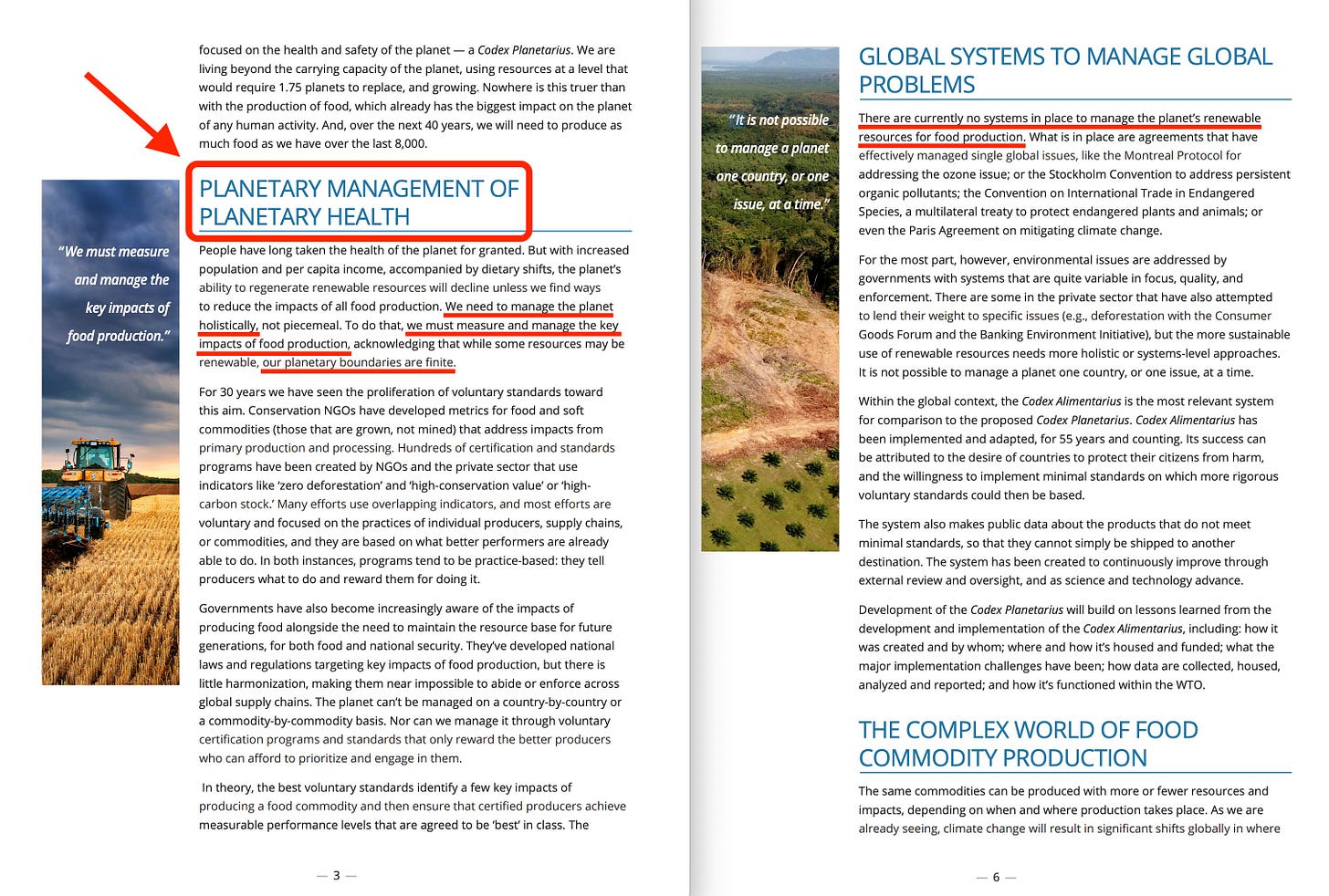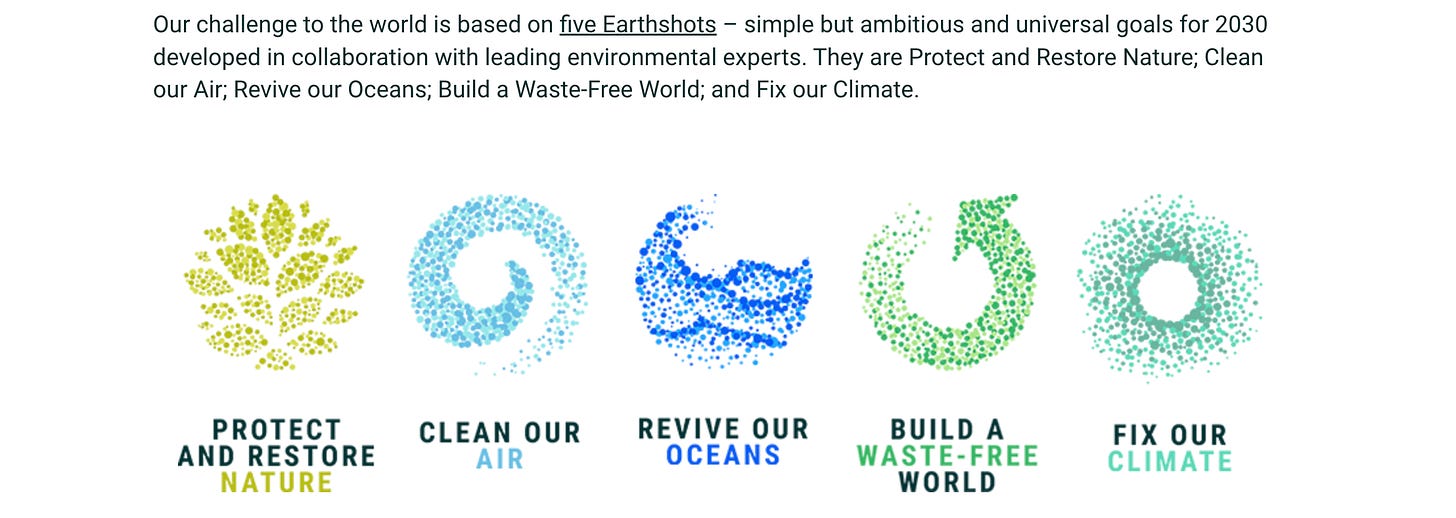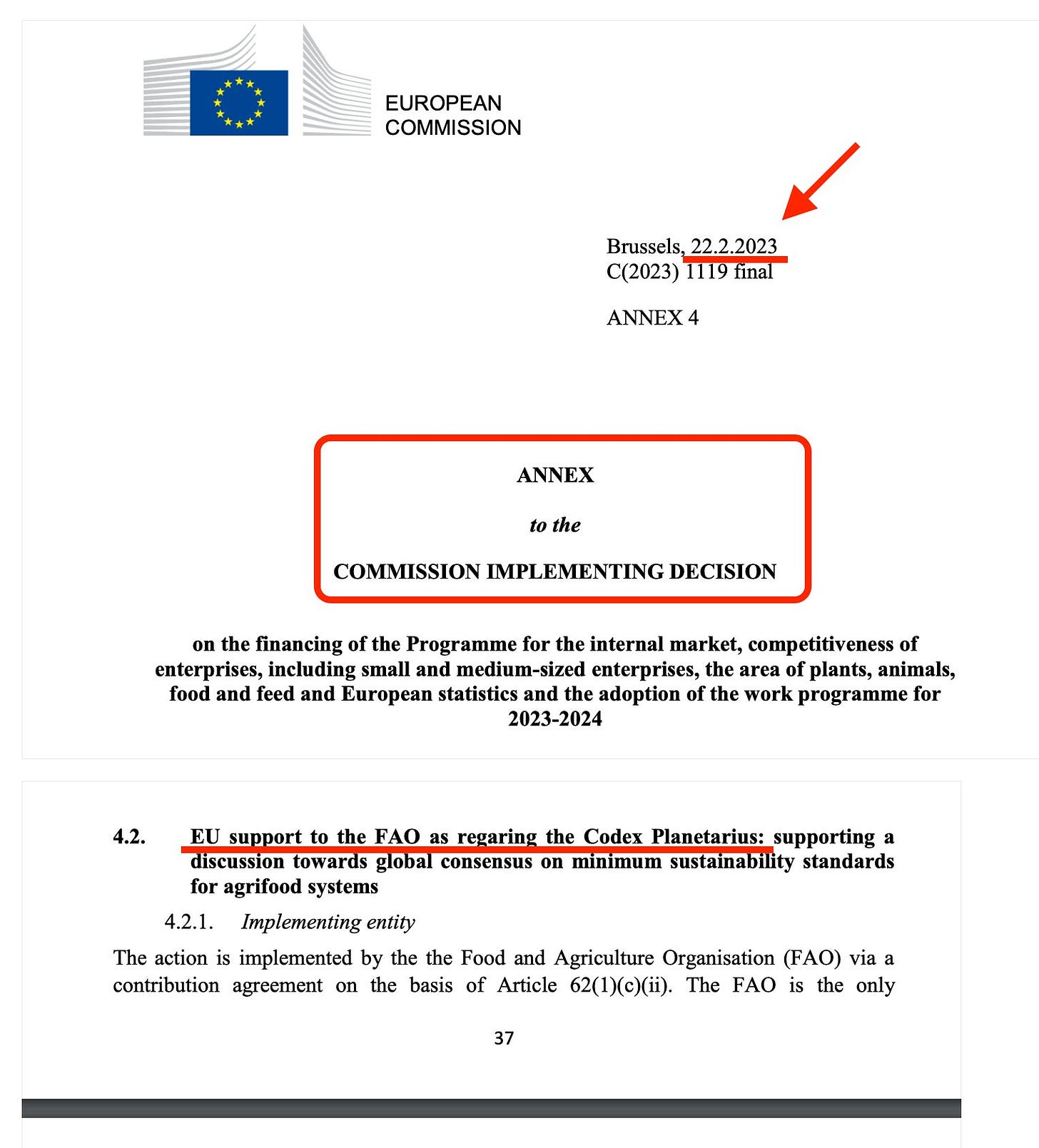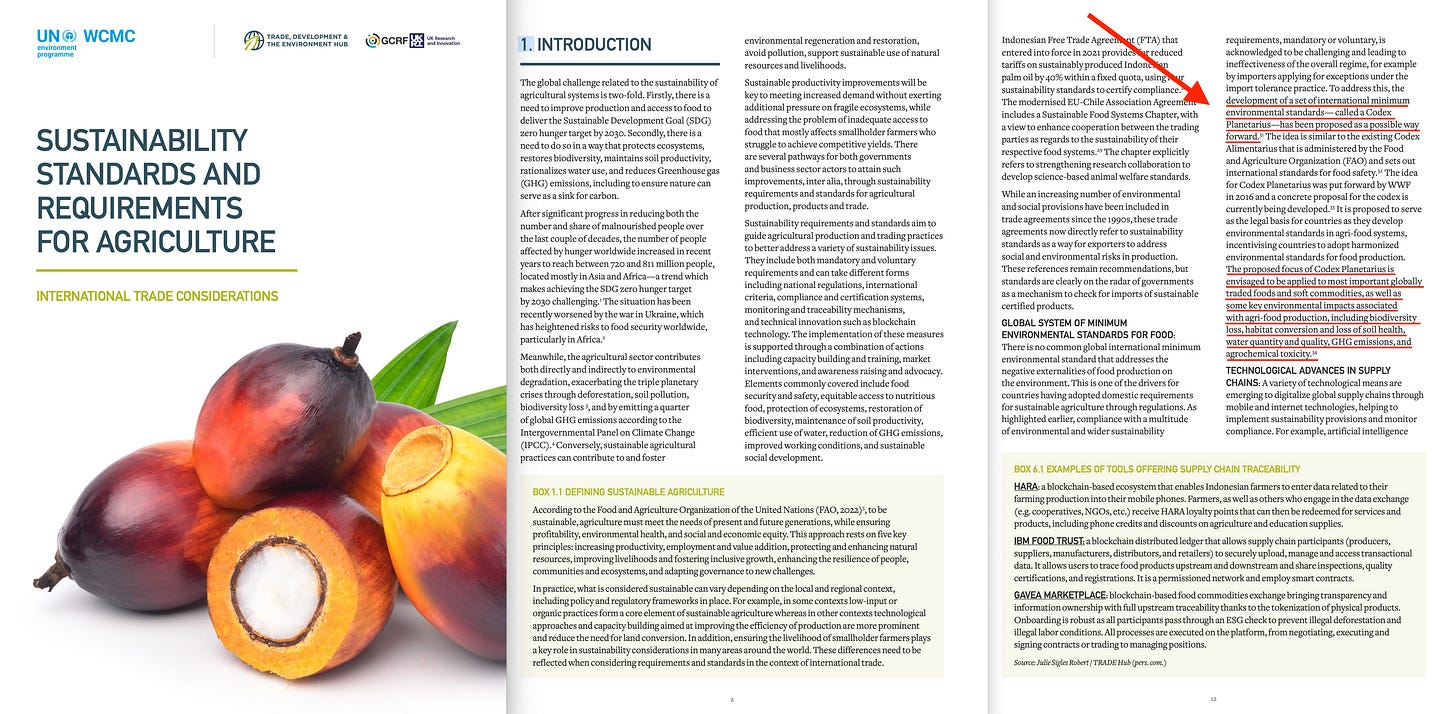Planetary Health
The first question to ask is - what genuine difference is there between One Health and Planetary Health? And as the case is - not a lot.
And yet, when viewed under a different light - quite a lot.
-
Mention 1969, and the first thing that will strike you might well be the moon landing. Or it might be the first Concorde test flight. Or it could be something different and seemingly random - like this January, 1969, edition of the UNESCO Courier.
It might appear somewhat odd at first glance to drag in a 54 year old edition of an official UN magazine, in its 22nd season. But there’s a reason. See, already in 1969, the United Nations knew exactly what the trouble with planet was - humans.
Quoting ‘Can we keep our Planet Inhabitable’ on page 4 -
‘Hasty felling of forests to clear new land for crops; swift and reckless encroachment on the countryside to make place for tentacular cities, factories, highways and aerodromes; destruction and erosion of the soil; pollution of air and water; disappearance of wildlife; accumulation of waste products and mounds of rubbish; defacement of rural scenery; the increasing poisoning of our planet all are the bitter fruit of man's technological skill, of the exponential rate of increase in population and the modern mystique of productivity.‘
So, for those counting, that would be forests, countryside, soil, air, water, wildlife, waste, and the rural scenery. And finally, there’s just too damn many of us already!
Fortunately for us, they propose a solution. On pages 38-39, the revealed their Blueprint for Planetary Management. It really is a fascinating article, and there’s a whole range of reasons for that - and they all fundamentally point their finger squarely at human activity.
Not only does it point out that developing land, and keeping livestock, has through deforestation caused upheaval to a range of species, this in turn has led to an increase in viral outbreaks, which can be dangerous to humans. So, you see - we are our own worst enemy. Oh wait.
Furthermore, a change in food uptake patterns also is set to cause nutritional deficiencies, and an increase in shantytowns, with inhabitants ruthlessly severed from their traditional values. Oh wait.
Public health in said shantytowns is on the decline, and lob in unprecedented population movements, and you have yourself… a script which appears very, very familiar to those who have read the Sustainable Development Goals, or any other contemporary United Nations document…
… or one, written by Robert A. Cook, William B. Karesh, and Steven A. Osofsky in 2004.
But for all the negativity, they do finish off on a bright note -
‘The biggest danger of all is our inability to control the explosive rate of growth of human population. A real damping down of this would lessen the all too frequent policy of expediency, bolstered by technology divorced from the philosophy of science.
The scientist as a social entity must eventually establish the necessity for the ecosystem approach to world problems as a safeguard against unbalanced technological action. We have yet to realize that political guidance and restraint is nothing like so operative on technology as on other major fields of human action.‘
What on earth is this ‘ecosystem approach to world problems’, and what does it have to do with ‘Plantary Management’?
-
Well, as it transpires, there’s no definition of ‘Ecosystem approach’, But we can bullet point what we do know from the article. We need to -
Spend money on public parks
Establish reserves and national parks
Create natural areas as reservoirs
Engage farming in water conservation practices
Have agriculture care for the best soils
Rehabilitate the world to avoid disaster
-
[X]
Now, pardon me. We now have two lists, let’s combine these. What appear suggested is that we need to protect and restore nature. We need to clean our air, revive our oceans, build a waste-free world, and we need to fix our climate. And hypothetically, were we to measure these, here are a range of factors which should plug right in -
Biodiversity loss (2, 3)
Habitat conversion/loss (2, 3, 6)
Soil health (5)
Water take quantity (4)
Water effluent quality (4, 5)
GHG emissions (6)
Agrochemical toxicity (5)
Furthermore, UNESCO has embarked on a program to resolve ‘the four major crisis’ - education, human rights (really!), development aid, and youth. Well, technicaly, a crisis of society and youth. Again, this strikes me as rather close to contemporary promised ‘solutions’ to, well, plenty. Recruit the young, educate them with some flawed definition of human rights, in this case with the aim of spending money overseas on development, but it could be for any other purpose - including climate anxiety in more contemporary settings.
Setting aside the potential for monetary gain in this instance, it goes on to outline the plan -
Life-long education
Modernise universities, propagate scientific spirit
Promote social and human sciences
Push idea of common human destiny
Use modern communication
I could quickly rewrite this as - ‘universities should educate the young into careers of permanent unemployment through a focus on useless social and human science degrees, while hammering in the concept of interdependence - all through state-of-the-art communication methods’.
No mention of them aiming to control what ‘science’ is, and dictate which fields should be pursued.
The document, in short, a merely a stepping stone towards the planned outcome. Most telling in regards to this end goal is the use of the term ‘common human destiny’. This, in short, goes under the term ‘interdependence’ which is collectivism. It has been pushed from behind the curtain for a very long time. Whether you call it communism, fascism, authoritarianism, etc really does not matter one iota. Because once you’ve lost your rights and a corrupt elite taken over, that debate is entirely academic. They can - and will - do with you as they see fit, and there is very little you can do about it. Debate it when you’re sitting in the gulag, waiting for your showtrial.
-
Planetary Health was suggested in 2014 by Richard Horton, and eventually, released as an article in 2015 by the Lancet with support from the Rockefeller Foundation.
From my younger days, I recall the golden rule - the longer the paper, or more impenetrable the language, the less genuine content there generally happens to be - and this exceedingly long (and exceedingly boring) document is no exception. In fact, to prevent anyone falling asleep, let’s instead address the question on the topic of Planetary Health - how does it differ from One Health?
For a while, I personally believed the difference was related to the integration with planetary and macroenvironmental concerns, but this, without ever being able to succinctly explain in detail. And chances are, if you can’t explain something, then you probably don’t truly understand.
So I sat down and read probably some 10 articles, supposedly outlining the differences. And you know what I found?
They couldn’t define it either.
And that’s when it hit me. I conceeded to Milgram Experiment, and accepted that there is no difference. Planetary Health and One Health relate to the exact same thing. The difference between the two do not relate to the matter these encapsulate - the difference relate to the contexts in which they are used.
-
In 2012, a little noticed document was released by Resolve, Inc, titled ‘Toward Sustainability - The Roles and Limitations of Certification’. Chapter 2 of the document outline who (NGOs, civil society, government, business), what (standards and certification), chapter 3 relate to impacts, and chapter 4 details how to get there.
The document is some 427 pages, and it roughly outlines a range of policy suggestions and guidelines in the area of product certification standards - to be applied globally. Here’s a part of the executive summary.
Yes, really. These standards will eventually through integration into company supply chain requirements and government regulation quite literally control who’s allowed to trade, when, what, and with whom.
Total control.
And you’ll be pleased to find that not only is civil society not even considered in their recommendations, in fact, the foundations are suggested responsible for updating said ‘voluntary’ standards.
Total corruption. They will change regulations, and immediately front run said change through their for-profits investment vehicles — like Breakthrough Energy.
Regardless, section 5 is where it’s at. Specifically, on page 92, in a small footnote, it drags in the ‘Codex Planetarius’ -
‘… Codex Planetarius—that is used to evaluate the production of food and fiber and other renewable products‘
Anything you can grow, in short.
-
And the Codex Planetarius arrived in 2016, courtesy of the WWF.
‘As proposed, the Codex Planetarius is a mandatory system to monitor the health of renewable environmental resources used to produce globally traded food. Focused on a planetary scale, it establishes and requires minimum performance levels for countries to enter global markets.‘
They kick off by seeking to be the gatekeepers of food trading.
On page 3, it carries on -
‘We need to manage the planet holistically, not piecemeal. To do that, we must measure and manage the key impacts of food production, acknowledging that while some resources may be renewable, our planetary boundaries are finite.‘
Holistic - evaluating as a whole - means becoming a lot more open to interpretation. Ie, judgment calls - which will always rule in their favour.
‘The Codex Alimentarius focuses on metrics that reflect key consumer health and safety issues: pesticide, antibiotic, and other residues; e-coli, salmonella, aflatoxin, bacteria, and other direct health issues; dilution; spoilage; foreign matter; etc. However, it does not address the health of the planet, which has direct linkages with the health of people…
… which is why the Codex Planetarius is so necessary. It would provide governments, businesses, trade authorities, multilateral organizations, NGOs, civil society, and other key institutions a baseline for environmental performance in the global production of food and soft commodities. The Codex Planetarius will harmonize and prioritize the diverse efforts of commodity- specific standards to form a cohesive, mandatory mechanism — an “umbrella” standard — to monitor how well the planet’s renewable natural resources are being managed for future generations.‘
Oh, so now it’s soft commodities - ie, not just food, but anything grown. That means cotton, tobacco, logs, herbs, spices, oil, alcohol, cut flowers, … even Christmas trees.
And before you know it, this will obviously be applied to secondary factors just as well.
-
‘To be effective, the Codex Planetarius will require the collection of consistent data from around the world…
It is also possible that existing data can be repurposed for Codex Planetarius. The questions to be answered are: what are the most important impacts that need to be monitored to ensure more sustainable food production; …’
And there you go, surveillance. Global surveillance to protect you.
-
‘From work on voluntary standards, there is some consensus on a relatively short list of key impacts for assessing the global impact of food production -
Biodiversity loss, habitat conversion/loss, soil health, water take quantity, water effluent quality, GHG emissions, agrochemical toxicity‘
Oh wait, that list appears remarkably familiar. Oh wait yeah, there it is - up near the top of this article. [X] marks the spot.
-
But before we close this out, let’s briefly return to 1969. The moment of that year was undoubtedly the moon landing, an initiative, which can be traced back to John F Kennedy, and his 1962 ‘Moonshot‘ challenge.
Well, it just so happens that HRH Prince William in 2020 launched his ‘Earthshot Prize’.
And it’s at this stage something else, terribly familiar arrives.
The five earthshots.
[X] Once again marks the spot.
Sure, tell yourself that it’s just another extraordinary experience, one of many. But I choose to believe another - less conspiratorial - possibility. Because the simple fact is this -
Without owning up to colossally misleading the public on intent related to the reasoning behind the introduction of One Health, this term is somewhat of a dead end in terms of oversight. Planetary Health is less restricted.
And the possibility I mentioned above? Oh, you can find that on page 3 of the Codex Planetarius document above -
And planetary management was explicitly what the 1969 UNESCO Courier presented a blueprint for.
-
The final question in this regard is this - is this being considered for adoptation by the various parliaments and governments?
Well, first - here it is in an annex to an EU implementing decision as of the February the 22nd, 2023. So, yes - definitely being considered by the EU.
And the UK? October 21, 2021.
As for the United Nations.
‘The proposed focus of Codex Planetarius is envisaged to be applied to most important globally traded foods and soft commodities, as well as some key environmental impacts associated with agri-food production, including biodiversity loss, habitat conversion and loss of soil health, water quantity and quality, GHG emissions, and agrochemical toxicity.‘
Are you resting easy this won’t be rolled out to chemical fertiliser, relatively soon after passing?
-
And finally, let’s finish off with another UN report, because it drags in Chatham House
‘To complement the Codex Alimentarius, there is growing interest in the development of a new set of minimum international standards – a Codex Planetarius – that would set standards for the sustainable production of the most important globally traded food and soft commodities, with the goal of safeguarding the health of the planet’s food systems‘
… the definition has now moved to the ‘health of the food systems’ - which, usefully, is somewhat more open to interpretation.
‘The proposal for a Codex Planetarius, developed by WWF, aims to establish an international baseline for the development of national environmental standards, which countries can improve upon and go beyond at the national level. ‘
… and they now seek to re-run the Pandemic Treaty script.
-
And with all of this being said, I believe that not only has this been planned for generations.
But I also still maintain that there’s a real likelihood that Sri Lanka was a trial run.
Sri Lanka
As I was going through the threads I previously posted on Twitter, I wasn’t quite sure on which topic to start. So why Sri Lanka? Because in many ways, it’s a microcosm of things to come. It shows the genuine impact of implementing United Nations’ lunatic Sustainable Development Goals (SDGs)






















I brought a planetary health book- tried to read it and couldn't get very far. Very dry, a lot of figures. Thanks for this breakdown.